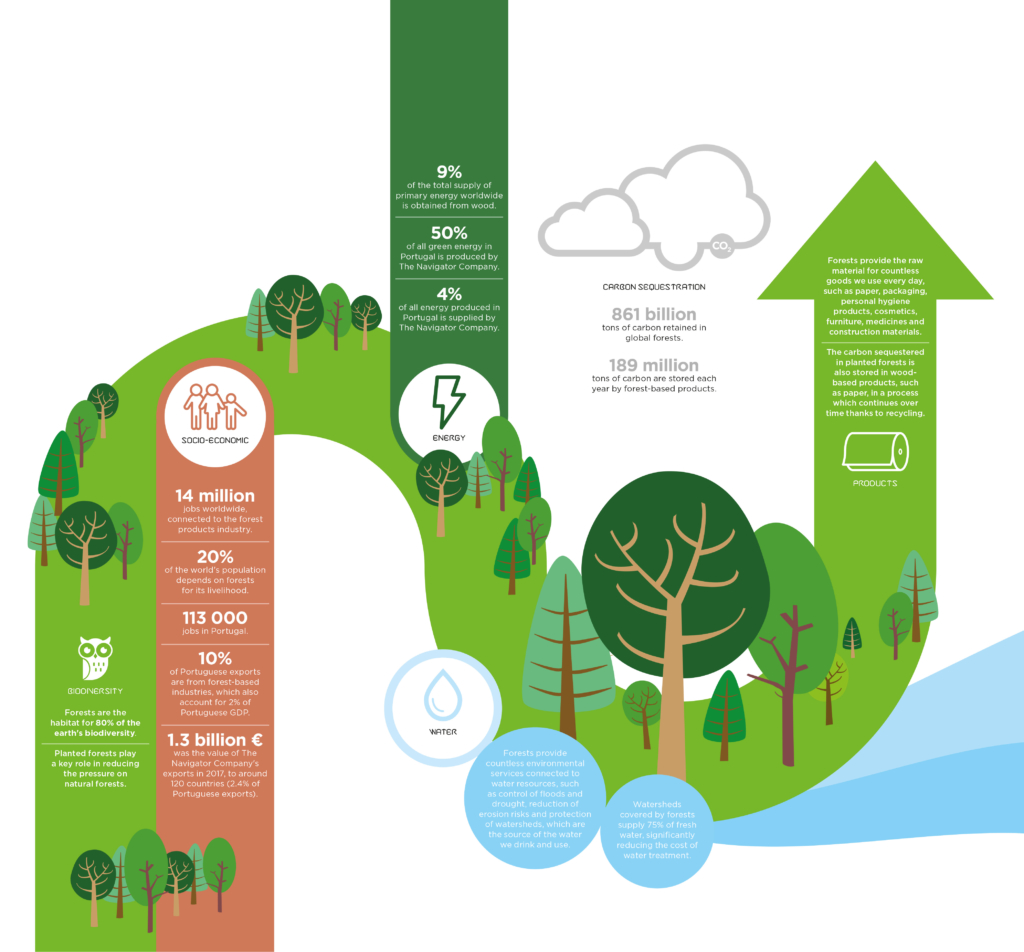The world population has already grown to 7.6 billion people, but although our numbers continue to increase, the world’s resources do not. The concept of sustainable development responds precisely to what we know about the limits to these resources.
Development is needed to create jobs and improve living standards, but for this to be sustainable, the industries developed must balance economic, social and ecological factors. And forests are a unique resource for achieving this balance, thanks to their ability to respond to multiple needs, and their extraordinary capacity to renew themselves.
The wide range of products and services which forests can offer creates opportunities for responding to many of the most urgent challenges posed by sustainable development. They make countless contributions, such as by providing sustainable sources of good, energy, ecosystem services and wood.
Forests are a fundamental pillar in creating value for forest landowners and for the sustainability of the pulp and paper industry, in Portugal and around the world. In this country, the forestry sector adds huge value to the national economy, accounting for roughly 2% of GDP, and since 1990 has contributed to an annual net reduction of 2.4 million tons of CO2 in Portugal’s emissions.
The Navigator Company has long been aware of the role of forests and been ready to invest in this role, attaching value to the environmental and social component of forest management, promoting certification of forest producers and rewarding suppliers of certified wood. These principles and attitudes have contributed to the sustainability of Portugal’s woodlands and make the industry and effective contributor to sustainable development.
United Nations creates strategic plan for forests
On 20 January 2017, the Special Session of the United Nations Forum on Forests adopted the recommendations of the Forum’s working group, including the UN’s first Strategic Plan for Forests. This 14-year plan (2017-2030) provides a framework for efforts to manage sustainably all types of forests and trees outside forests, and to combat deforestation and forest degradation.
The aims to be achieved by 2030 include significantly increasing the area of protected forests worldwide and the area of sustainably managed forests, as well as the proportion of forestry products obtained from responsibly managed forests.
Forests make countless contributions, such as by providing sustainable sources of good, energy, ecosystem services and wood.
